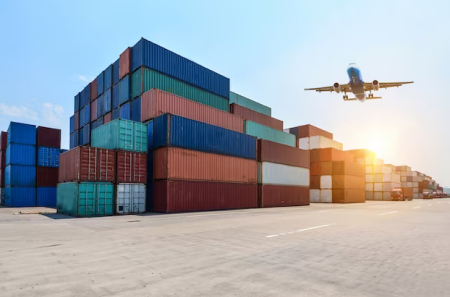Financial transactions
Thanks to the integrated financial management tools of 2customs , companies can effectively control their payments and costs in foreign trade processes, monitor instant payment status, and issue invoices.
2customs , accuracy and transparency in financial transactions provides reliability to businesses and strengthens commercial relationships. It enables the digital storage and sharing of documents related to financial transactions. In this way, paper -based document management and storage costs are saved and businesses can access documents quickly and safely.
In addition, the integration capabilities of 2customs allow businesses to synchronize financial data with other internal and external systems


Trade financing
The financing of international trade transactions is particularly complex for small and medium -sized enterprises (SMEs). It is very important to explore and benefit from the trade financing options offered by banks, financial institutions and government programs.
Trade Finance Support
- 2Customs is integrated with trade financing platforms or banks to facilitate access to trade financing options.
- It facilitates the application and approval process for trade financing instruments such as credit or export insurance.
- 2customs also offers tools to manage and monitor trade financing transactions and related documents.

Compliance with the legislation
Foreign trade requires compliance with various financial regulations, trade laws and customs requirements. Failure to comply with these regulations may cause penalties, fines and even legal proceedings. It is very important to have information about the relevant regulations, to keep the appropriate records and to ensure compliance
Compliance and regulatory management
- 2customs application helps enterprises comply with financial regulations and trade laws.
- Provides document templates and automatic workflows to ensure proper documentation.
- The application also shows potential sanctions or restricted sides during financial transactions

Regulatory institutions
Financial transactions in foreign trade are subject to various arrangements and compliance requirements, including black money laundering (AML), customer diagnosis (KYC) and commercial sanctions. Failure to comply with these regulations may lead to legal and financial consequences. It is necessary to have solid harmony procedures, to detect appropriate situation and to have information about the relevant regulations and sanctions implemented by different countries and regulatory institutions.
Automatic Documentation and Processes
- 2customs application automates the creation and management of financial documents for foreign trade transactions.
- Based on predefined templates and legal requirements, it creates accurate invoices, purchasing orders, letter of credit, and other necessary documents.
- Automated workflows ensure efficient and error -free processing of financial transactions

Data flow to financial systems
Manual processes can lead to errors, delays and inefficiency in financial management for foreign trade. Trusting electronic statements may not be enough to address the complexity of international transactions. The use of solid financial management systems such as corporate resource planning (ERP) applications or private trade financing platforms facilitates processes and increases accuracy. Regular and instant data flow should be provided to these applications
Reporting and Analysis
- 2customs application provides comprehensive reports and analyzes related to financial management and transactions in foreign trade.
- Transfers the data that can be used for cash flow, foreign exchange risks, payment trends and profitability analysis to other systems.
- Supports conscious decision making and strategic planning with reports

Complex documentation and procedures
Financial transactions in foreign trade include complex documentation and procedures. Missing or incorrect documents can lead to delays, rejection or additional costs. It is very important to understand the special documentation requirements of different countries and trade financing processes. Applying effective document management systems and working closely with trade financing experts or experts can help to overcome complexities and provide compatibility
Financial Management in Foreign Trade
- 2customs increases accuracy with process flows adapted to foreign trade transactions, improves compatibility, and allows you to have better control over financial operations.
- It is a customizable solution that is integrated with existing systems and financial service providers in accordance with the special needs of your business.

